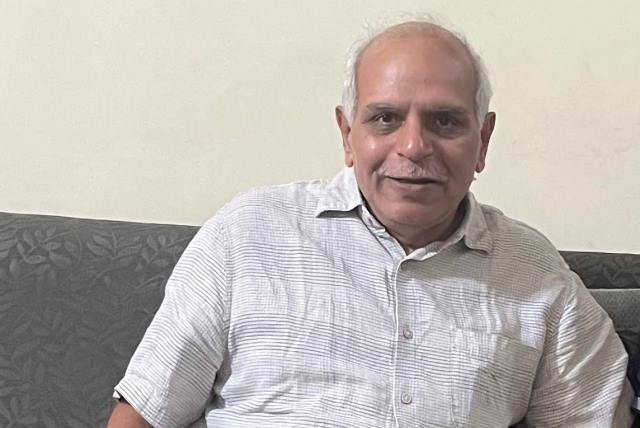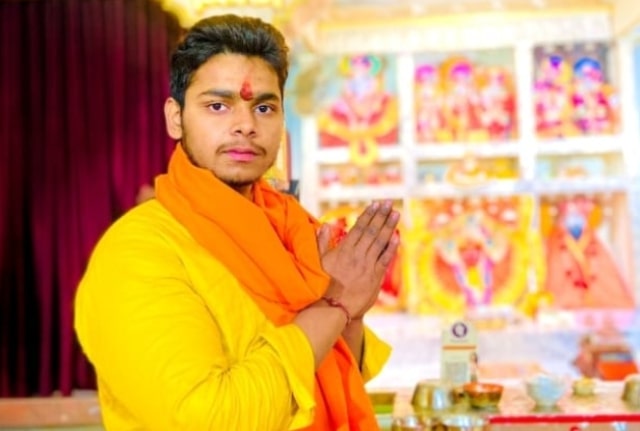Bhupendra Yadav, a senior academic based in Western Uttar Pradesh, is happy that Supreme Court has nixed UP Govt’s move to fan Hindu-Muslim antagonism. His views:
The Uttar Pradesh Dookan aur Vanijya Adhisthan Adhiniyam, 1962, regulates shops and trading establishments in UP. It expects all commercial units to register and pay a fee to the government for running their business. Nowhere does this Act mention advertising the name/religion of the owner of such an establishment on a board outside, or, on a placard inside the shop.
The diktat of the Yogi Adityanath government is not surprising. This is because the BJP wishes to isolate Muslim vendors and eateries. Their political objective is to incite devout Hindus, on a pilgrimage, to boycott Muslim shops and vendors.
This helps this party to fan separatism and thrive on the Hindu-Muslim antagonism they have sowed over decades. Like all majoritarian parties, it thinks only numbers matter, while propriety and morality is also decided by numbers — and that might is right!
After the electoral setback in UP in the 2024 parliamentary polls, the BJP seems to have turned from a well-oiled, cash-rich election machine, to a foul-mouthed band of bad-losers. For instance, Sanjeev Balyan is engaged in a public spat with Sangeet Som, another leader of his own party! Is it insecurity, or, is it the vain desire to stay in the news?
Balyan is no ordinary BJP leader. He’s a clever manipulator and a rabble-rouser par excellence. So, half his politics is governed by communalism, but the other half is driven by insecurity, following his defeat in Muzaffarnagar in 2024 parliamentary polls.
ALSO READ: ‘Yogi Has Done Some Good Work, But Polarised Society Too’
He became a Union minister in Narendra Modi’s cabinet, the first time he won as an MP. Why? Was it because he was accused of fomenting Hindu-Muslim tension in September, 2013? By the way, he was jailed as a precautionary measure by the Akhilesh Yadav government at that time. Hence, here is a die-hard hate-politics symbol who is a ‘direct beneficiary’ of the Muzaffarnagar violence of 2013!
A PhD in veterinary sciences, he was retained as a minister of state despite his bad record. Whatever he did as a minister of fisheries and animal husbandry isn’t advertised. However, he supported Yogi’s ordinance against inter-community marriage which was misrepresented as love-jihad.
In July 2023, Balyan walked 150 kms, like an ordinary kanwariya. He claimed he was undertaking the yatra to propagate a Uniform Civil Code for all citizens in India. This year he has not undertaken the Yatra as yet. But, he is supporting the police diktat to advertise the name of owners and workers of eateries/carts. Why? Balyan’s answer is: “It is a holy month and the pilgrims don’t even eat garlic and onion during the Yatra. What if they lose their piety by the touch of meat or a meat-eater? As a precaution against possible misunderstanding, the names should be displayed.”
However, no one is asking him a crucial question: What if Hindus too, choose to eat in those eateries, simply because they consume meat, garlic and onion, as a part of their regular cuisine?
Communal blinkers may prevent us from exploring the origin of our food, or the historical route of fruits and vegetables. Tea or coffee is our favourite beverage. They are not native to India; they were imported to India. Our staple food is wheat or rice. Neither of it originated in India. Can we live without such beverages and staple foods?
Like our petrol, the dates we eat come from Islamic countries of West Asia. Are they to be boycotted? Mangoes are endemic to India. Several mango orchards in UP are owned by Muslims. Is this delicious fruit, also to be avoided?
Besides, Kanwar means the device used to carry water in two pots, tied to either ends of a pole. Those who carry the device are called Kanwariyas. Legend has it that Shiva drank the poison produced from Samudramanthan, or, the churning of oceans. To relieve Shiva of the negative energy produced by the poison, the Kanwariyas bathe him with the holy Ganga water they carry home from Haridwar, Gaumukh or Gangotri. By walking barefoot for long distances over several days, the Kanwariyas prove their religious devotion. Thereby, we can’t fault them for their beliefs.
With the rise of Hindu communal organisations, this pilgrimage is prone to violence. The number of participants has gone up to a few crores. Moreover, to annoy Muslims, the Kanwariyas are reported to be playing loud music in front of mosques at prayer time.
Ensuring that this Yatra is held peacefully is already an administrative nightmare. Why add to the complexity by this illogical diktat? Thankfully, the Supreme Court has stopped the unreasonable order, even as other BJP-ruled states seemed to be quickly choosing to toe the same line. Hope good sense prevails.
(The narrator is an alumnus of JNU and a former professor of Azim Premji University, Bangalore. He is the author of Framing History — Contexts and Perspectives)
As told to Amit Sengupta
For more details visit us: https://lokmarg.com/

